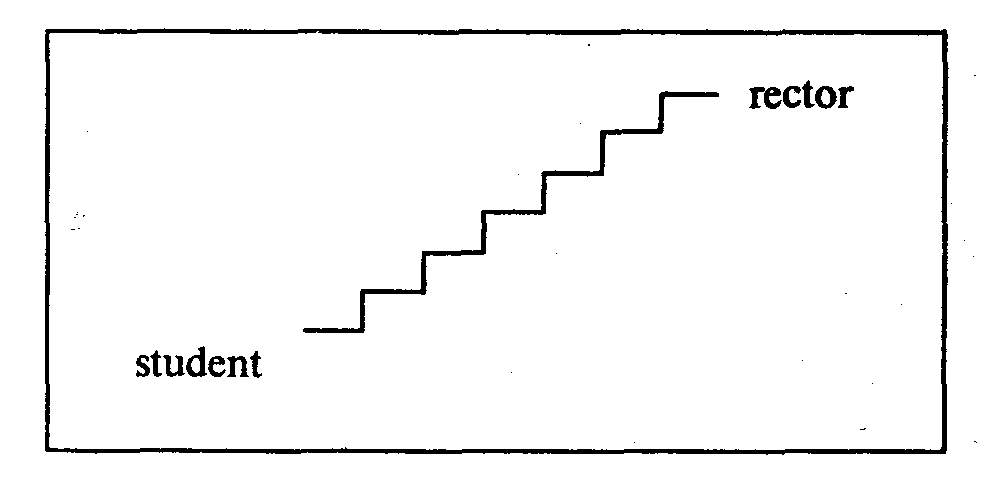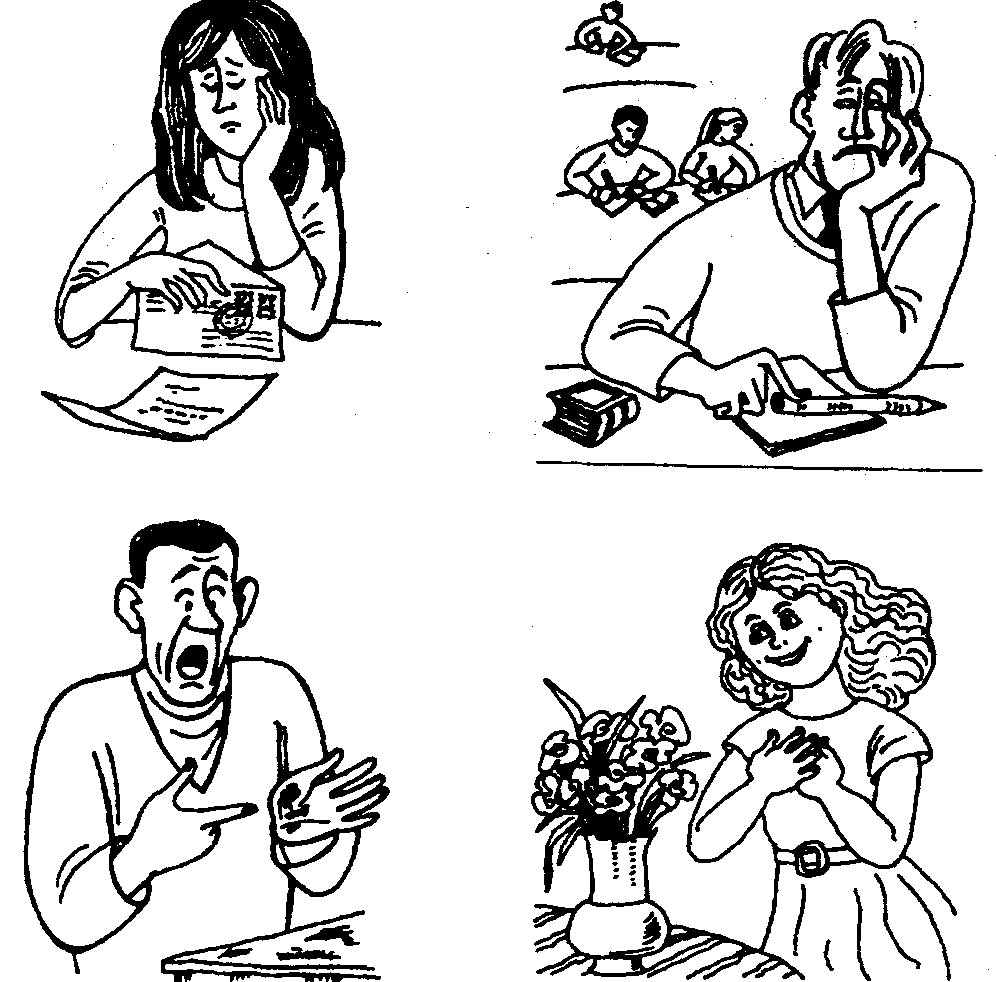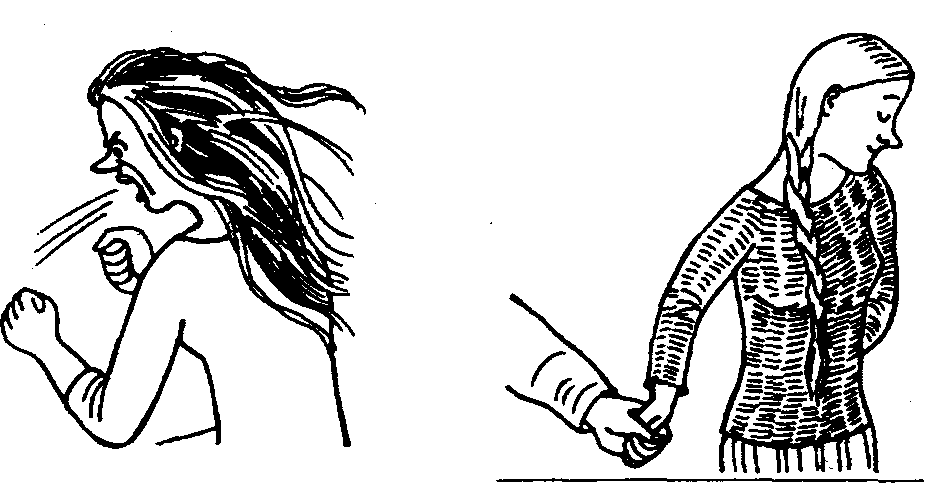
- •College life
- •Introductory reading and talk
- •I. Read and translate the story.
- •II. Find the English equivalents for the following.
- •III. Speak about your distractions. Use the patterns from the text:
- •1. Read and translate the story. Answer and discuss in class the questions below. Continue the story.
- •II. Find the English equivalents to the Russian words and phases.
- •III. Answer the questions and express your opinion on the following.
- •Writing
- •1. Write an essay on one of the following topics.
College life
Introductory reading and talk
The merry-go-round of college life is something that one never forgets. It's a fascinating, fantastic, fabulous experience, irrespective of the fact whether one is a full-time or a part-time student.
Who can forget the first day at the university when one turns from an applicant who has passed entrance exams into a first-year student? I did it! I entered, I got in to the university! A solemn ceremony in front of the university building and serious people making speeches. Hey, lad, do you happen to know who they are? Who? The rector, vice-rectors, deans, subdeans... and what about those ladies? Heads of departments and senior lecturers? Okay. Some of them must be professors, some — associate or assistant professors, but, of course, all of them have high academic degrees. And where are our lecturers and tutors? Oh, how nice...
The monitors hand out student membership cards, student record books and library cards — one feels like a real person. First celebrations and then days of hard work. So many classes, so many new subjects to put on the timetable! The curriculum seems to be developed especially for geniuses. Lectures, seminars and tutorials. Home preparations; a real avalanche of homeworks.
If one can not cope with the work load of college he or she immediately starts lagging behind. It is easier to keep pace with the programme than to catch up with it later. Everyone tries hard to be, or at least to look, diligent. First tests and examination sessions. The first successes and first failures: "I have passed!" or "He has not given me a pass!" Tears and smiles. And a long-awaited vacation.
The merry-go-round runs faster. Assignments, written reproductions, compositions, synopses, papers. Translations checked up and marked. "Professor, I have never played truant, I had a good excuse for missing classes". Works handed in and handed out. Reading up for exams. "No, professor, I have never cheated — no cribs. I just crammed".
Junior students become senior. Still all of them are one family — undergraduates. Students' parties in the students' clab. Meeting people and parting with people. You know, Nora is going to be expelled and Dora is going to graduate with honours. Yearly essays, graduation dissertations, finals...
What? A teacher's certificate? You mean, I've got a degree in English? I am happy! It is over! It is over... Is it over? Oh, no...
A postgraduate course, a thesis, an oral, and a degree in Philology. The first of September. Where are the students of the faculty of foreign languages? Is it the English department? Oh, how nice...
1. Say a few words about your university: say what it is called, speak about its faculties and their specializations.
2. Would you compare college life with a merry-go-round or with something else?
3. What do you think of the first months at the university?
4. They say that it is a poor soldier who does not want to become a general. Name the steps of the social ladder which a student must pass to climb up to the position of the rector. Use the words from the list below, placing one word on one step.
Dean, assistant lecturer, head of department, vice-rector, associate professor, assistant professor, subdean, professor.

Exercise 1
The curriculum at the Law faculty consists of several subjects which all students must study. Make a list of these subjects. In class speak about your favourites and the ones you dislike (d). Explain to your partners why you enjoy(ed) or don't (didn't) enjoy them.
Exercise 2
When do we say the following about people? Give answers, using the pattern.
► Pattern: She never misses classes.
We say, 'She never misses classes' if she attends classes regularly.
1. Nick has a good command of English.
2. Richard has done well in his exams.
3. Donna lags behind the group.
4. Brenda keeps up with the rest of the group.
5. Susan has failed in her exam.
6. Ray is burning the midnight oil.
7. Sara can't learn English just by picking it up.
8. David and Steve never disrupt classes.
9. Max never cribs at exams.
10. Brandon lacks fluency.
11. Helen is fond of playing truant.
Exercise 3
Name at least two or three situations that cause you feel the emotions listed below.
► Pattern: I find talking about things that don't interest me boring.
I find writing long tests annoying.
boring embarrassing depressing confusing exciting amusing worrying annoying
— attending lectures (seminars, classes)
— taking notes
— reading up (for)
— making reports
— writing essays
— doing one's homework
— correcting mistakes
— translating from Russian into English (from English into Russian)
— rendering texts
— doing exercises
— listening to the tapes
— transcribing and intoning
— working on one's thesis
— participating in class
— missing classes
— disrupting classes
— coming late to one's classes (lectures, exams)
— cheating (in exams and tests)
— taking examinations
— failing examinations
— retaking examinations
Continue the list. Compare your answers with those of other students in the class. Discuss these situations and the feelings they cause. Also discuss what activities you think difficult and what — easy.
Exercise 4
Complain about some things or activities at college (at the university) that annoy you. Talk about something that you do not enjoy. Explain why. Work in pairs.
► Use:
For complaining:
I'm beginning to get rather tired of...
I've had (I have) a lot of trouble with ...
The trouble with ... is that...
I'm sick and tired of...
They should/ought to ...
I'm not at all satisfied with ...
For agreement: For disagreement:
Yes, it is a problem, isn't it? Really? I can't say I've
Yes, it can be a problem, particularly noticed that...
can't it? I can see what you mean but..
I think I can understand Oh, come on, it isn't that bad.
how you feel.
Yes, I know what you mean.
Exercise 4
Speak in class what you feel when:
you get a bad mark; you fall (lag) behind the group; you fail (in) an examination; you read up for an examination late at night; you miss classes; you come late to classes; you keep up with the rest of the group; you catch up with the rest; you have to retake an examination; you work in the library at the weekend; you work on your dissertation on holiday; you spend sleepless nights over a load of books; you look up every word in your dictionary when reading an English book; you are not prepared for the class; you are given virtually no time to digest and remember several chapters; the telephone rings while you are doing your homework; your essay is well-received; another student cheats at an examination or test.
► Patterns: I feel like a failure when I fall behind the group.
I feel pleased/confused/bored, etc. when I catch up with the rest.
Exercise5
Guess what the people in the picture feel and why. Use the topical vocabulary.
► Patterns: He looks satisfied. He must have got a good mark.
S he
looks bored. She must be listening to a boring lecture.
he
looks bored. She must be listening to a boring lecture.


Exercise 6
An old Chinese saying states that "a picture is worth a thousand words". With a partner discuss each of these pictures. Answer the questions below.
1 . What
has happened? Why do you think so? 2. What is happening now? Why do
you think so? 3. What is going to happen? Why do you think so?
. What
has happened? Why do you think so? 2. What is happening now? Why do
you think so? 3. What is going to happen? Why do you think so?
Exercise 7
